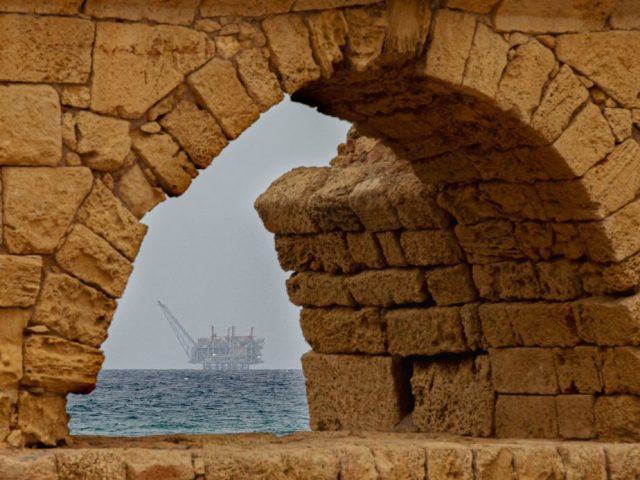AFP — European Commission chief Ursula von der Leyen and Italian Prime Minister Mario Draghi were headed to Israel Monday as the EU seeks to wean itself off Russian fossil fuel imports.
Both leaders were due to hold energy talks in Israel, which has turned from a natural gas importer into an exporter in recent years because of major offshore finds.
Von der Leyen was to meet Foreign Minister Yair Lapid on Monday and Prime Minister Naftali Bennett on Tuesday, with talks expected to focus “in particular on energy cooperation,” a commission statement said.
Mario Draghi, on his first Middle East trip since taking office last year, will also discuss energy and food security during his two-day trip, Italian media reported.
Both leaders will on Tuesday meet Palestinian prime minister Mohammed Shttayeh in the occupied West Bank.
The EU this month formally adopted a ban on most Russian oil imports, its toughest sanctions yet over the war on Ukraine. Von der Leyen has suggested the bloc end its dependence on Russian hydrocarbons, including gas, by 2027.
Draghi and other EU leaders have warned European customers may need protection as energy costs continue to rise.
Israeli Energy Minister Karine Elharrar and other officials have said their country could help meet EU demand if it can deliver gas from its offshore reserves estimated at nearly 1,000 billion cubic metres.
– Export options –
For now, getting Israeli gas to Europe is fraught with challenges and would require major and long-term infrastructure investments.
With no pipeline linking its offshore fields to Europe, one option for now is piping natural to Egypt, where it could be liquified for export by ship to Europe.
Another scenario that has been floated is building a pipeline to Turkey.
Israel’s ties with Ankara have thawed after more than a decade of diplomatic rupture and experts have said Turkey’s desire for joint energy projects has partly triggered its outreach to Israel.
That pipeline project would take $1.5 billion and two to three years to complete, according to Israel’s former energy minister Yuval Steizitz, now an opposition lawmaker.
Option three is known as the EastMed project, a proposal for a seafloor pipeline linking Israel with Cyprus and Greece.
Experts have however raised concerns about the cost and viability of the project, while Israel has said it would like to see Italy sign on.
Further complicating Israel’s offshore gas production is a long-running maritime border dispute with Lebanon.
The neighbours technically remain at war but have agreed to US-mediated talks aimed at delineating the border to allow both countries to boost exploration.
Talks broke down last year but Israel has urged Lebanon to re-engage.
Tensions flared this month following a Lebanese claim that Israeli production was taking place in contested waters.
Israel countered that the area was located clearly south of the disputed zone.
The US envoy mediating the maritime border talks, Amos Hochstein, was due in Lebanon on Monday.

COMMENTS
Please let us know if you're having issues with commenting.